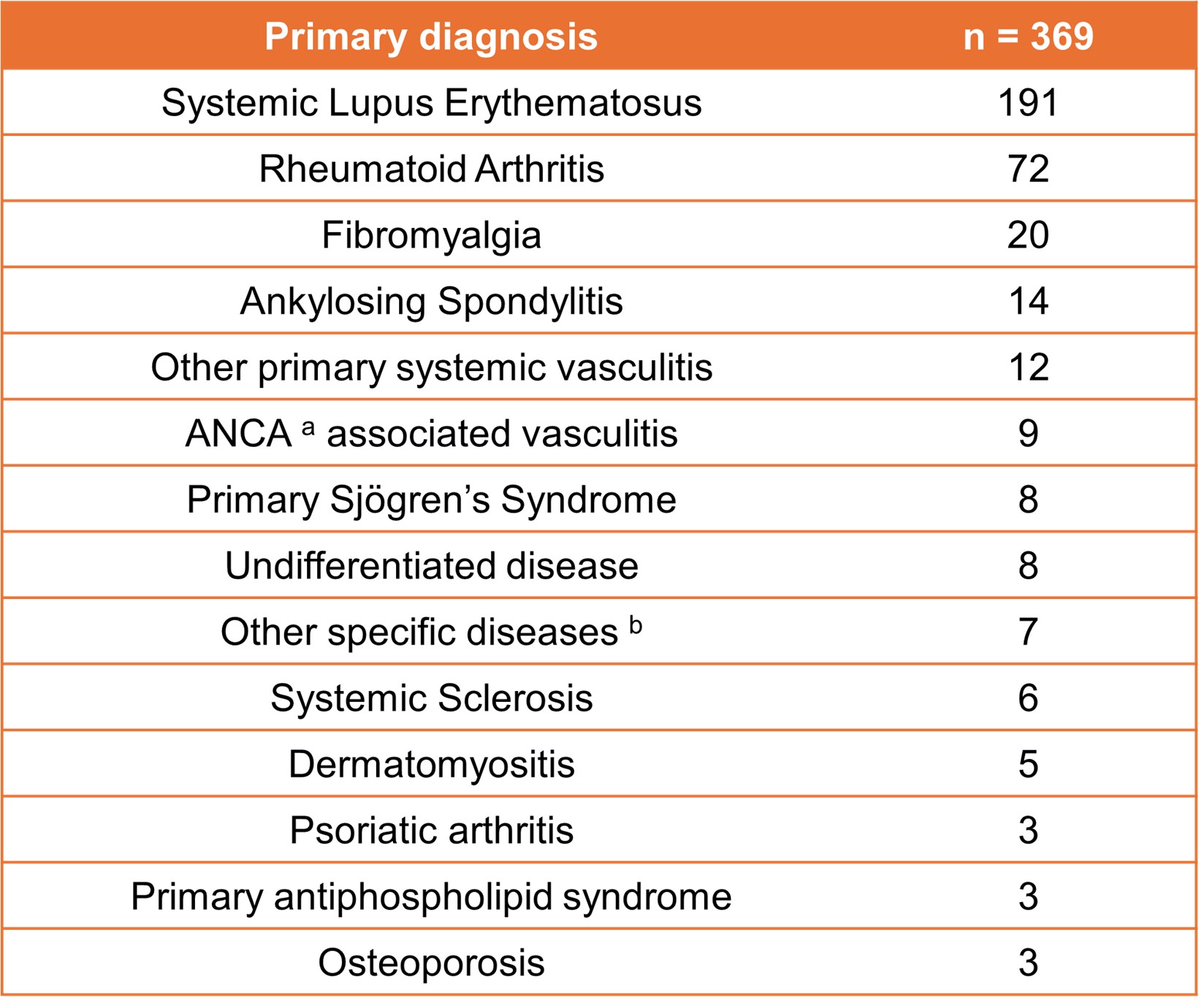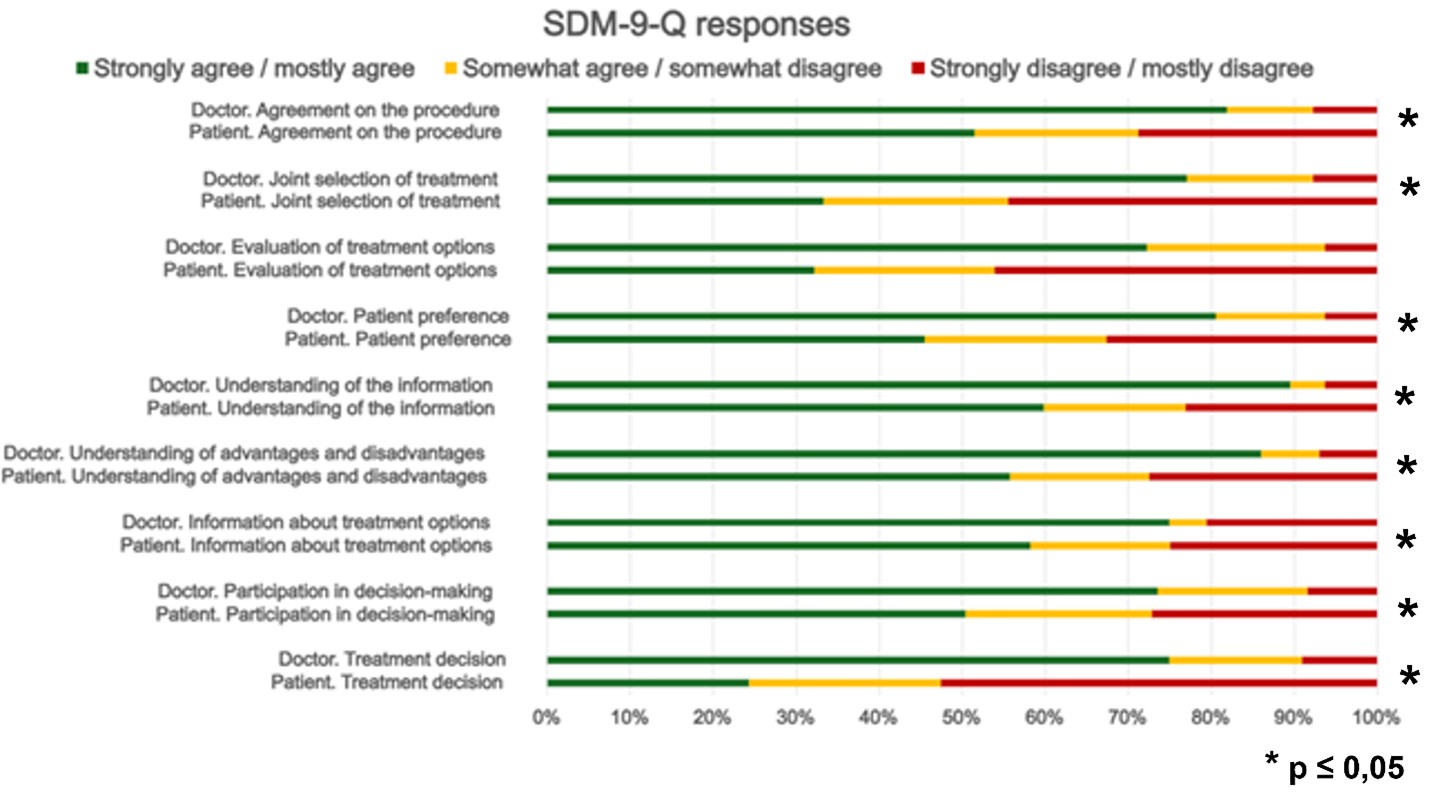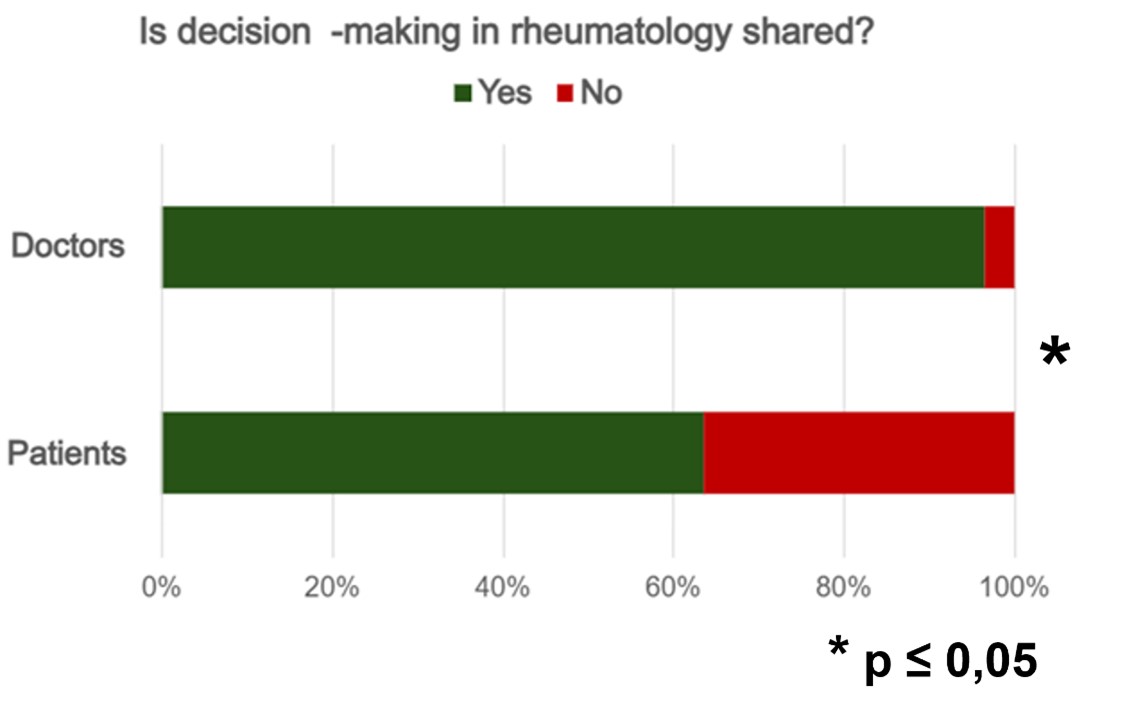Session Information
Session Type: Poster Session B
Session Time: 10:30AM-12:30PM
Background/Purpose: Scientific evidence supports that shared decision-making (SDM) can improve adherence to treatment, patient satisfaction, quality of life, clinical outcomes, and healthcare costs. However, challenges persist in implementing SDM in clinical practice. This study aims to evaluate and compare the perception of Latin American patients and rheumatologists on SDM.
Methods: In a cross-sectional study, patients over 18 with chronic rheumatic diseases and Spanish-speaking rheumatologists completed the SDM-Q-9 survey. Convenience sampling was used, and the survey was distributed via Colombian Rheumatology Association (AsoReuma), Pan-American League of Associations in Rheumatology (PANLAR), and active Latin American patient associations. Responses were scored from 1 to 6 to gauge agreement with nine statements. Additionally, the perception of SDM in clinical practice was rated from 0 to 3. Descriptive statistics were used to summarize the dataset. The Chi-square test was applied to assess differences between groups, considering a p-value of < 0.05 indicative of statistical significance.
Results: The survey collected responses from 369 patients across 17 Latin American countries, predominantly female (76.4%), with a median age of 40. The majority were diagnosed with systemic lupus erythematosus (51.8%), followed by rheumatoid arthritis (19.5%) (table). Additionally, 144 rheumatologists from 10 Latin American countries participated, predominantly male (67%), with a median age of 44. A statistically significant difference was found between the perceptions of rheumatologists and patients in the clinical setting (Image 1). While nearly all rheumatologists (96.5%) considered that decision-making is shared with patients, more than one-third of patients (37.7%) did not share this view (Image 2).
Conclusion: The study identifies a significant difference between patients and rheumatologists’ perceptions of SDM in healthcare settings. Although physicians provide comprehensive information on the risks and benefits of treatments, a smaller proportion of patients perceive that their understanding and involvement in treatment choices are thoroughly incorporated. This highlights a prevalent opportunity for enhancement across various components constituting SDM, such as treatment choice, participation in the decision-making process, understanding of the benefits and risks of the selected therapies, comprehension of the information provided, individual patient preferences, evaluation of therapeutic alternatives, collaborative selection of treatment, and consensus on the course of action to follow.
To cite this abstract in AMA style:
VANEGAS A, Quiceno G, Lira L, Ochoa G, Arbeláez-Cortés Á, Restrepo-Escobar M, Pascual Ramos V. The Art of Choosing Together: Unveiling the Patient’s Perspective in Rheumatology [abstract]. Arthritis Rheumatol. 2024; 76 (suppl 9). https://acrabstracts.org/abstract/the-art-of-choosing-together-unveiling-the-patients-perspective-in-rheumatology/. Accessed .« Back to ACR Convergence 2024
ACR Meeting Abstracts - https://acrabstracts.org/abstract/the-art-of-choosing-together-unveiling-the-patients-perspective-in-rheumatology/



